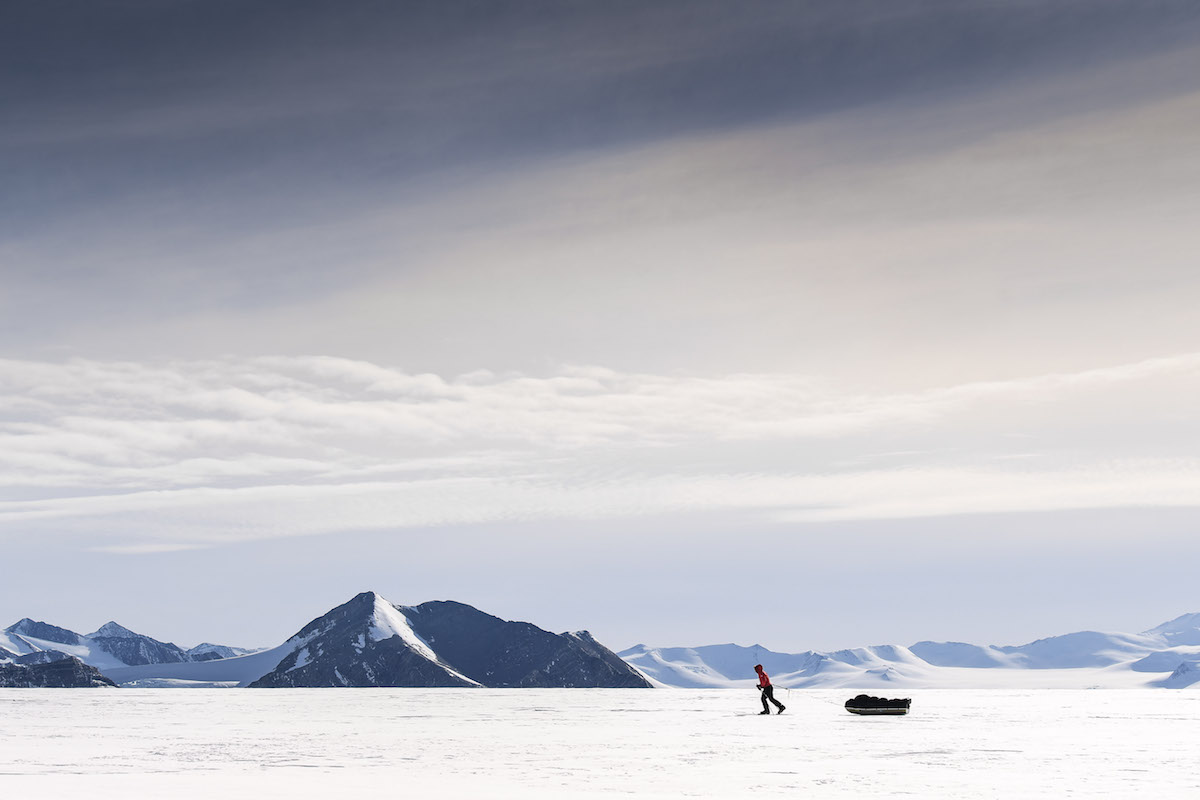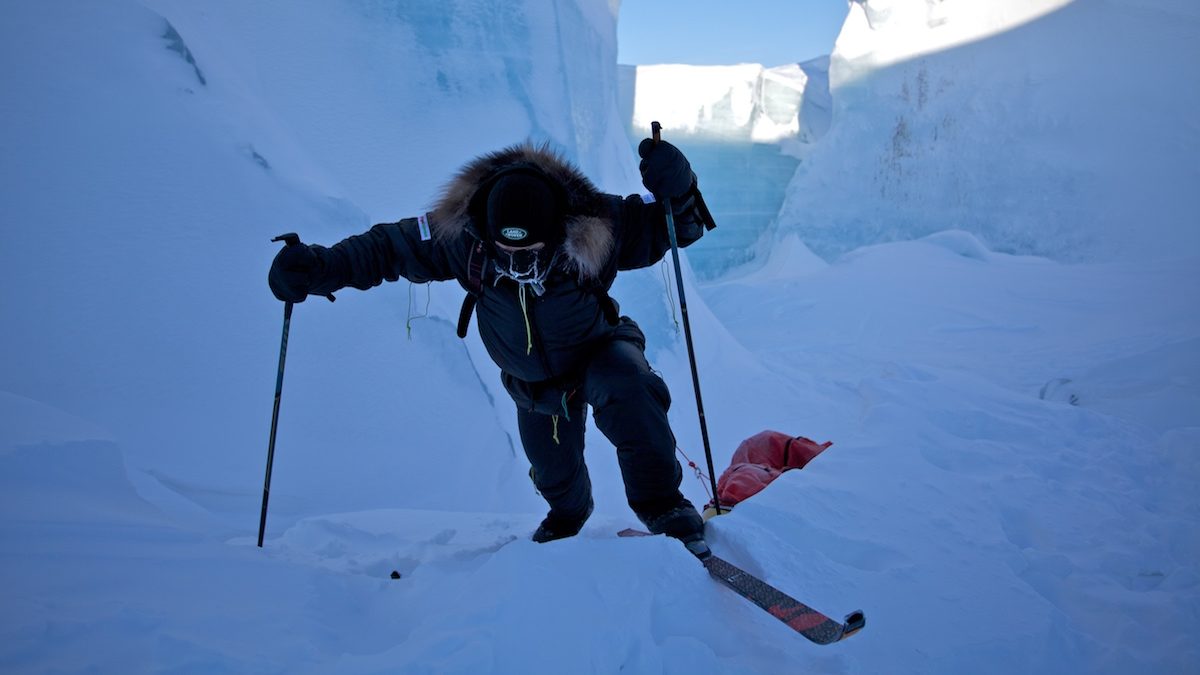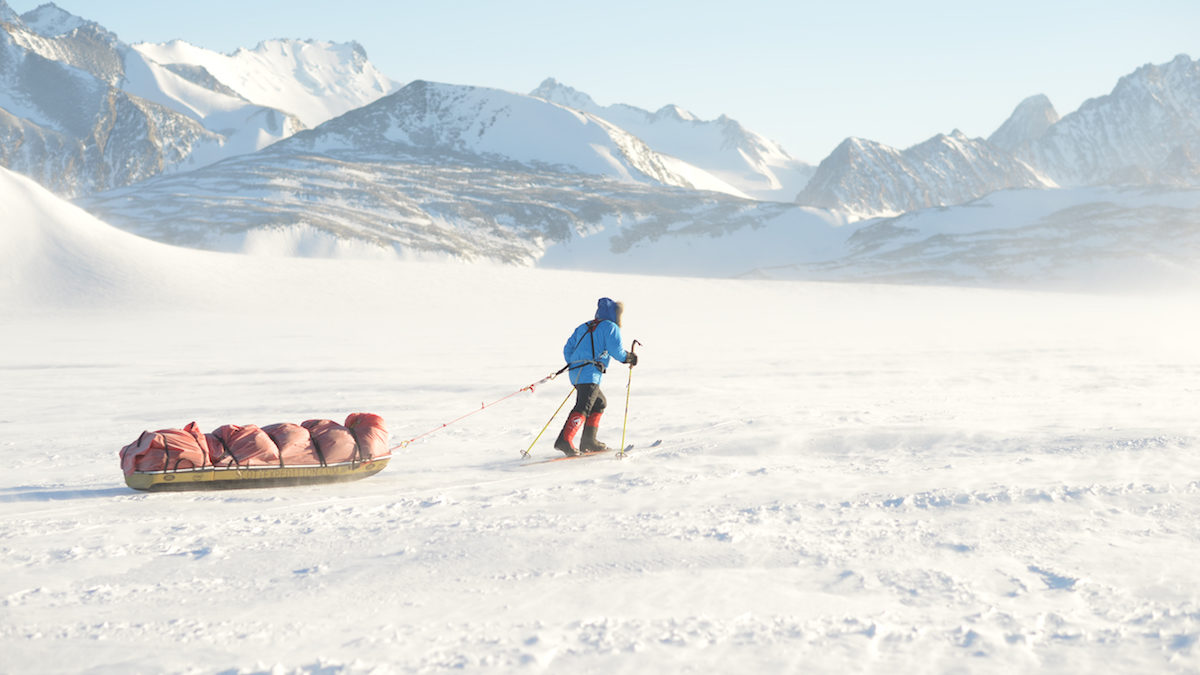What Behavioural Scientists and a Polar Explorer Can Teach Us About Coping in Solitude

In the week of December 20th, the day after a second UK lockdown had been announced, Google searches for the term ‘alone’ doubled in quantity. The data serves as a stark reminder that, for the first time in recent history, millions of people around the world would spend the holiday season in solitude.
Trains were cancelled. Christmas dinners were replaced with family FaceTimes and 2020, a year most would like to forget, would be seen out over Zoom. At this point, the pandemic had dominated headlines for around nine months, but this latest milestone presented one of the darkest points of what would become an entire year spent in the wretched “new normal”.
Days were shorter and nights were longer, with many of us grappling with emotions we weren’t familiar with. A winter spent in solitude would test us in new ways. There were, however, a particular sect of people — including astronauts, scientists, explorers, elite-level endurance athletes, and submariners — that would become a welcome source of inspiration for coping in this new environment. They were masters at isolation who had put years into their craft and served as a welcome reminder of the power of human resilience. So, what can we learn from them and those who helped forge their mindset?
Lessons From Space
“I’m inspired by astronauts, who often live quite stressful lives on the ground as well as in space,” explains Konstantin Chterev, space psychologist lead at SAGA Space Architects, who has worked for NASA and the European Space Agency on projects focused on human performance in extreme environments. “Astronauts spend a lot of time apart from their families and friends, finding ways to deal with this lifestyle on the ground and in space. Many develop strategies and routines to stay in contact with their loved ones, exercise, and set goals to stay focused and have something to work towards.”
For many, however, exercise and communication were already regular factors in our lives before the pandemic hit. We had to use our resources differently and, as Chterev explains, set ourselves new, flexible objectives. “From our research in isolation, plans and milestones tend to provide more benefits than disadvantages.

“They provide structure and consistency which are key in coping. Flexibility is also important in adapting to isolation. Astronauts improvise in space. They’ve created games to play in microgravity and made use of the environment to have fun. While fun can be planned, there’s something special about impromptu events that are a surprise and a chance for people to bond.”
Dr. Olivia Brown, research associate at the University of Bath, agrees. “In some of my research with expedition teams, we found that teams were more cohesive when they shared a sense of achievement in their daily task. Focus on the present and ‘easy wins’ that can be achieved each day.”
“There are some wonderful and inspiring stories of explorers who have thrived in isolated harsh environments, some of their top tips include taking each day at a time and keeping entertained with music and dancing,” Dr. Brown continues. “Translating that to the modern day and the monotony of a lockdown, it can be useful to make plans for the week ahead — whether that’s having a music night on a Friday or dressing up for a roast on a Sunday.
“Insight from astronauts suggests breaking up time into smaller chunks and building variety into day-to-day routines can help. That could be something as simple as eating a varied diet or celebrating the smallest of milestones.”
Third Quarter Syndrome
Roadmaps play a significant role, too. By examining the psychology of explorers, research teams from the Antarctic research stations and simulated Mars missions found that people often struggle with increased stress and changes in mood when they are between 50-75 percent of the way through their posting. “It’s important at this stage in the pandemic to consider what is known in the literature as “third quarter syndrome,” explains Dr. Brown.
“The end is in sight and feelings of being reunited with loved ones and of completing the mission can lead to heightened emotions…understanding that these feelings are normal can offer a source of comfort and there are positive signs with increased vaccinations and better treatment that we may soon be heading to that ‘final fourth quarter’ and a lasting return to normality.”
But, for the explorers on the ground, what do these practical applications of positive psychology look like? Solitude is all too familiar for Arctic explorer Ben Saunders, who was the third person to ski solo around both the North and South Poles. Time spent alone is one of Saunders’ biggest workplace environmental hazards — for the large majority of his expeditions “the closest human beings to me were on the International Space Station,” he says — but, combined with unpredictable weather and enormous physical exertion, mental resilience becomes crucial to his survival.

Headline image credit: Martin Hartley / Image credit: Andy Ward
“Focus is key. These expeditions have taught me a lot about how to pursue ambitious goals in an environment where so many crucial factors are completely outside my control,” he says. “They forced me to learn that focusing on, or worrying or getting angry about, the wind, the temperature or the terrain, factors that I was unable to influence, was a waste of my time and energy, and that focusing as exclusively as I could purely on the things that were within my control was the key to making meaningful progress.”
Clashing With Your Housemates
For some, however, issues can arise from being in close proximity with other people (a Russian engineer in Antarctica, for example, stabbed a colleague for spoiling the endings of the books he was reading), including housemates, partners and family members. But that doesn’t mean your home needs to become a social pressure cooker.
“Isolation can be tricky if you’re spending long periods together or apart,” explains Chterev. “It can be helpful to be reflective and open with those around you. Honesty can go a long way to maintain cohesion.”
Saunders, who has also been leading expeditions for 20 years, is accustomed to the tectonic shift that miscommunication or social rifts can bring about in an environment “that it would be illegal to keep prisoners in”.
Even small issues, he says, “invariably become consequential issues very quickly, under the enormous pressure we’re working under. The same holds true for the team. If something seemingly trivial isn’t working well, or there’s some form of friction, we have to stop and fix it straight away. Honesty and integrity are key, as is having the ability and the courage to ask for help if you need it.”

Image credit: Andy Ward
This emotional honesty carries over to Saunders’ solo expeditions, where his manager, thousands of miles away, used a 27-word grid system, relayed over satellite phone from Saunders’ tent, to accurately pinpoint the polar explorer’s emotional state.
Originally developed by psychologist Juliette Lloyd, the prompts include words such as ‘nervous, ‘alert’, unhappy’ and ‘exhausted’, to help establish an accurate emotional heat-map. “This system enabled me to completely unplug my ego. In reading out a string of numbers it allowed me to communicate entirely truthfully how I was coping,” Saunders admits.
Coming Out The Other Side
So, what lies on the other side of our own adventure? “When we come out of it, we might see people dedicate more attention to aspects of their life they hadn’t considered as much before,” Chterev explain.
“In our field we relate this to a concept called ‘salutogenesis’. People can find positive growth after experiencing these conditions, whether it’s from overcoming the challenge, or even enjoying certain parts of their environment. Many Antarctic researchers choose to return there after their first expedition due to personal growth and transformation of personal values.”
As for Saunders, reframing your experience could be crucial to your learning. “I used to define success as ‘achieving your goal’. These days, I’d define success as ‘continuing to strive well’.”


















